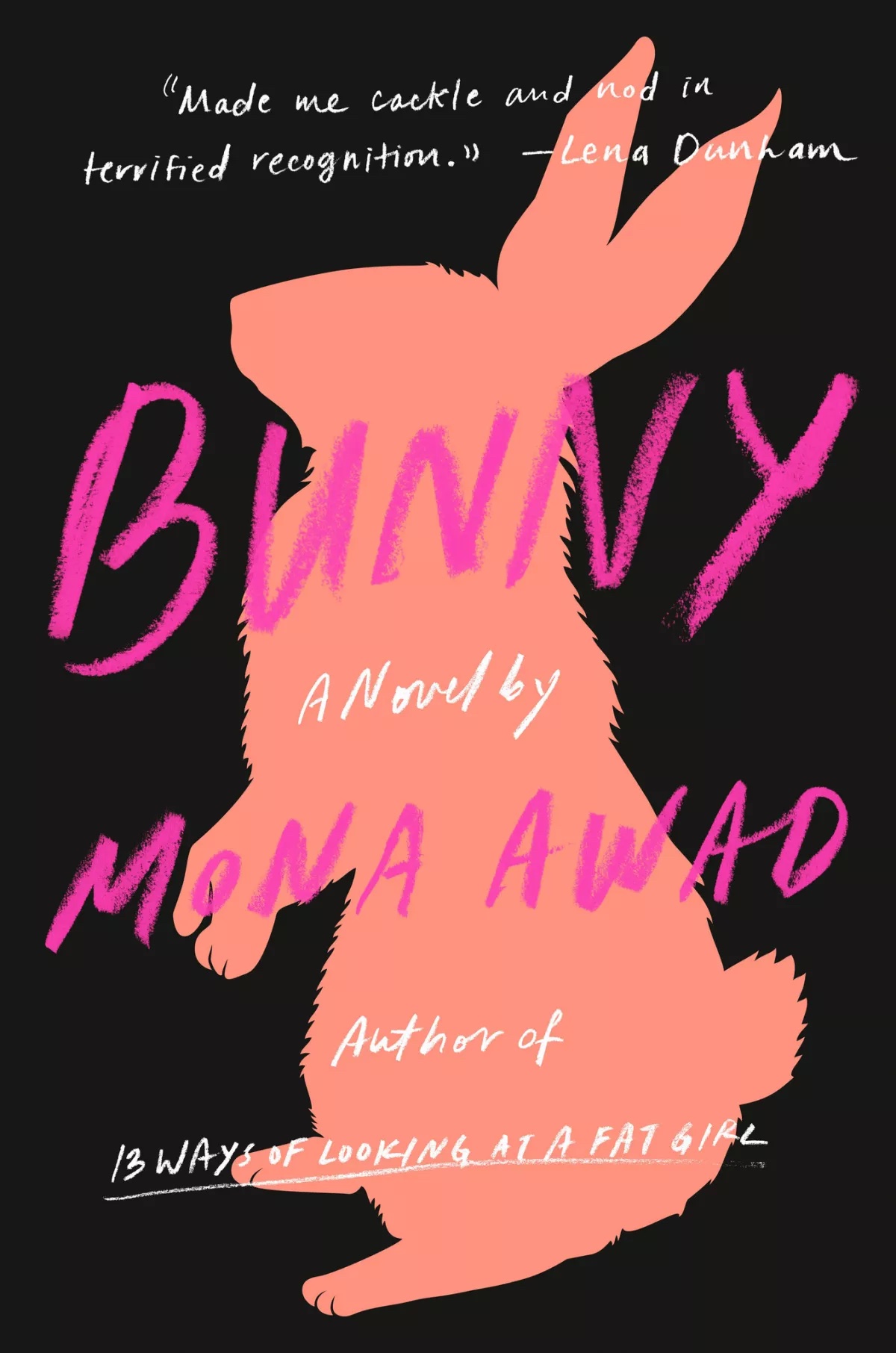
Bunnies: you know them; you love them; you probably make awkward eye contact with them whenever you cut through the sorority quad. But what if they were useful for more than the occasional GroupMe post? What if your words – your writing assignments, more specifically – could transform them into something infinitely more paranormal and vile?
That’s the premise of Bunny, a novel by Mona Awad that is equally disturbing, dastardly and delightful. Part Heathers, part Frankenstein, Awad has crafted a darkly satirical, borderline unhinged, take on something Northwestern itself holds dear: Masters of Fine Arts degrees (and the elitism that runs rampant in them).
Cynical protagonist Samantha is an outcast in her creative writing program until she gets drawn into the bizarre world of her classmates, a tight-knit old-money foursome who all refer to one another as “Bunny.” In an unexpected turn of events Sam is invited to the Bunnies’ extracurricular writing sessions, finding out that the girl group’s exclusive activities include poem readings, wine tastings and just a smidge of ritualistic animal sacrifice.
Bunny is the closest that I, a non-drug-user, has gotten to an acid trip. I’ve never found myself saying, “wait, what just happened?” so often while reading a book that’s described on its back cover as a fairly straightforward horror story. But Bunny’s chaotic nature doesn’t lead Awad’s writing to trip over unintentional plot holes; rather, it adds to the trance Samantha finds herself in as she falls down the Bunnies’ literal rabbit hole.
Is the story meant to be taken at face value, as a work of fantasy? Is it just one long pretentious metaphor? Will I ever see rabbits the same way again after reading this book? Who can say, but regardless, it’s clear that, within Samantha’s world, to be a Bunny is to be obsessed with your craft to the point of insanity. Though Awad stretches that concept to its furthest limit and beyond, it’s something I think many of us at Northwestern can relate to. Sleepless nights writing, hours spent composing, endless addition to a painting: Bunny captures that feeling of creative perfectionism perfectly, in a uniquely bizarre and drawn-out allegory. If you’ve ever felt like you’ve sacrificed a part of yourself for your art, you’ll feel at home with this out-of-this-world story.
Though not explicitly mentioned, it’s pretty clear that Bunny’s “Warren University” is a thinly-veiled mockery of Brown University, down to its mentions of famous Rhode-Island-born figures. Awad herself received her MFA at Brown, so the unsubtle digs come as no surprise; but her biting commentary on her Ivy League experience adds a very real level of nuance to the otherwise surreal absurdity of the plot.
As students at another competitive private school, we know all too well the delusion that is ingrained in American academia: the idea that, as long as you get into a university with a certain ranking based on some supposedly-reliable list, all your problems are solved forever. But, as we all know, this isn’t the case. For many students – especially those who can’t afford to pay full tuition – college is a far cry from the exclusive clubs, day trips and neopagan rituals their wealthier classmates have the time and money to engage in. Awad makes this wealth gap a vital point of the novel: though Samantha and the Bunnies have the same course schedule and are working towards the same degree, they are of noticeably different socioeconomic statuses. Samantha is on scholarship and lives in a gritty apartment downtown; the Bunnies share a mansion with a living room straight out of a Rococo literary salon. Beneath the freakish fantasy of Bunny, the socioeconomic commentary grounds the novel in reality and takes Bunny’s narration from paranormal to deeply pertinent.
Bunny is a truly perfect novel: engaging but entertaining, magical but morbid, you won’t be able to put the book down until you digest the very last delicious, poisonous drop. So, if you’re looking for a spooky October read that will forever change your perspective on college, creativity and our campus’ cutest little lagomorphs, look no further than Bunny.